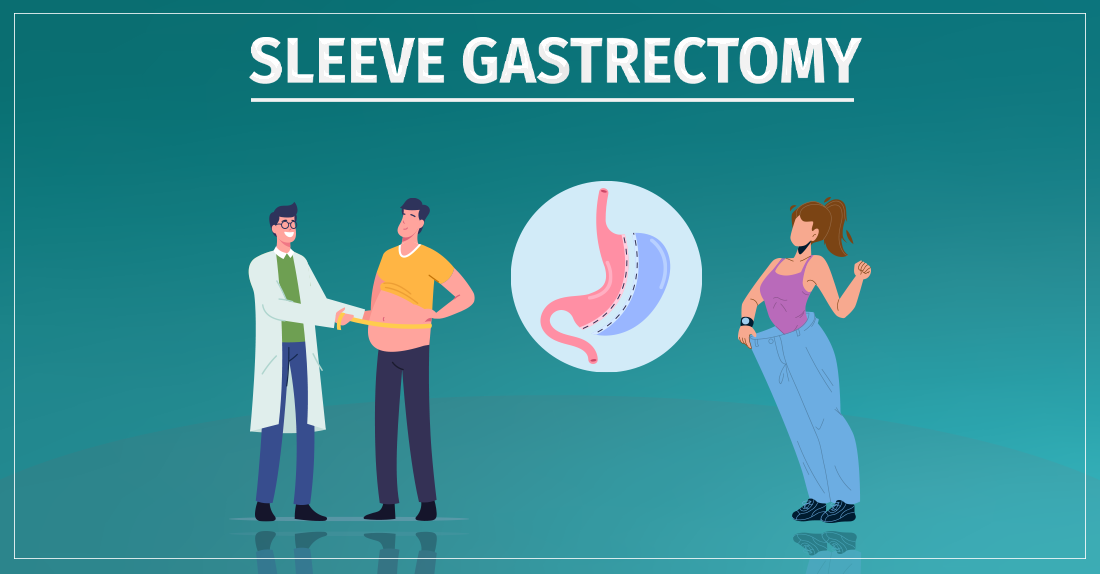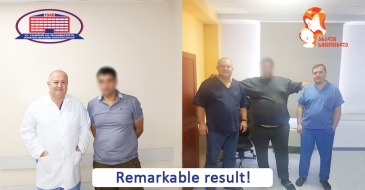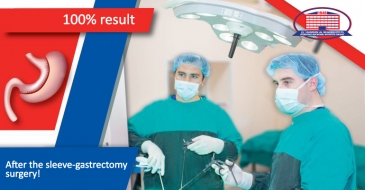
National Center of Surgery offers a stomach operation for weight loss.
In the clinic, sleeve gastrectomy is performed laparoscopically, bloodlessly.
With a 100% success record, sleeve gastrectomy is a minimally invasive surgical procedure for the stomach.
The operation is performed by bariatric surgeon, head of the surgery department Gigo Pichkhaia - 596 269 292.
What services does patients receive from the National Center of Surgery?
Your return to a healthy weight is taken care of by the clinic's professional surgeons, who have been performing this operation for years and have many recovered, grateful patients. In addition, surgeons use ultra-modern medical equipment during the operation.
The clinic satisfies all requirements for diagnosing the reason behind excess weight!
As you know, the National Center of Surgery is a multidisciplinary facility, and therefore, all services are gathered in one space.
What does it mean to have stomach surgery, and what is a sleeve gastrectomy?
Sleeve gastrectomy is a vertical resection of the stomach. During the operation, the volume of the stomach is reduced and the surgeons also remove the cells that produce the hormone ghrelin (the hormone that causes the feeling of hunger) in the patient.
The patient is monitored by an endocrinologist before following the procedure for a period of time. It can be safely said that the weight loss begins immediately after the operation, because due to the reduction of the stomach volume and the removal of the hunger-inducing hormone, the patient already eats a little and soon gets the feeling of weight gain.
Following a sleeve gastrectomy, individuals experience weight loss of several dozen kilograms.
Sleeve gastrectomy enables the patient say goodbye to extra weight while also regressing (decreasing) the diseases associated with obesity.
The finest equipment available at the National Center of Surgery contributes significantly to the procedure's success and lowers the possibility of complications. After the stomach reduction procedure, the patient wakes up the second day, moves around, returns home in five days, and begins exercising in one month.
The procedure takes roughly 1.5 to 2 hours to complete!
What is the suggested weight range for those undergoing gastric surgery?
When a patient's body mass index (BMI) is greater than 35–40 kg/m2 and they also have metabolic syndrome-related diseases like type 2 diabetes mellitus, hypertensive diseases, osteoporosis, venous insufficiency, and reproductive dysfunctions, surgery becomes necessary to combat excess weight.
What is the preparation period before the operation?
The patient's health is managed by a variety of doctors at the National Surgery Center. They design and carry out the entire examination protocol.
The clinic's medical staff makes sure the patient is ready for surgery:
- Surgeon;
- Cardiologist;
- Psychotherapist;
- Therapist;
- Endocrinologist;
- Nutritionist.
Why laparoscopic method, why bloodless operation is beneficial for the patient?
The benefits of laparoscopic surgery are numerous. First of all, because it is less stressful, recovery goes more quickly and easily, and the recovery period is significantly shorter and lighter. Additionally, there is a lower chance of postoperative problems and no need for special care, bed rest, or physical activity restrictions. Because of their small size, stitches disintegrate more easily.
Laparoscopic procedures maintain the abdominal cavity closed, which reduces the risk of infection after the procedure. Postoperative hernia is virtually unheard of in laparoscopic surgery, however it is extremely prevalent in open procedures.
Visit the National Center of Surgery to recover and receive an obesity cure!
Wish you health!










